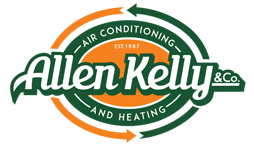The Benefits of Regularly Changing Your Air Filter
Your home’s heating system or air conditioner is likely to malfunction as a result of dust buildup in the air filters. As a result, it is usually recommended that you change your air filters after every one to three months. When you change the air filter, you keep the internal parts of your heating and air conditioning system free from dirt and avoid huge maintenance costs. Other benefits of changing your air filters include:
Energy Efficiency
Clean air filters make your home more energy efficient. When the air filters are clogged with dirt and dust, your Heating, Ventilation, and Air Conditioning (HVAC) system struggles to filter the air. As a result, it will use up more energy than usual and increase your energy bill. This effect also indirectly affects the environment. The production of electricity often leads to carbon emissions. When you use less electricity, you minimize the carbon emissions.
Improves Air Quality
Your air filters are made up of fiberglass that usually prevents microorganisms, molds, pollen, and dirt that may try to get into your HVAC system. It makes sure that you breathe in quality air. This means that if your air filters are dirty, you may get lung problems or start to cough because the quality of the air that you breathe is not good. Therefore, changing your air filters regularly is one way to guarantee your family’s health.
Better Temperature Control
Here is what happens when your air filters are clogged with dust and other particles: The air that passes through the HVAC system is not sufficient. For example, you may have to set a higher temperature than you usually do on the thermostat because it’s not warm enough. Alternatively, you may have to adjust your central air unit by lowering temperatures because the room is hotter than usual. You can improve your HVAC systems by changing your air filters. However, before you change the air filters, make sure that you inspect the rest of the system so as to make sure that the problem is not very serious.
Ensures that the HVAC System Lasts Longer
On average, you can pay between $6,000 and $12,000 to install a new HVAC system. That’s a lot of money. Failure to maintain and change your air filters regularly could mean going back to your pocket and investing in a new HVAC system. When your air filters become clogged to the point that they can no longer pass enough air. The HVAC systems will become overworked and possibly break down. Therefore, change your air filters regularly to avoid such problems. Furthermore, it is less expensive in the long run. One filter can cost between $10 and $20. That means that you are likely to spend less than $300 every year on changing your filters. Furthermore, this allows the HVAC system to last longer.
You Spend Less on Maintenance
When your air filters are blocked or clogged, the HVAC system is likely to develop certain malfunctions. The most common problem is a noisy system and worn out parts. Sometimes, it can also lead to bad smells in the house. This means that the repair company will have to charge you extra for parts replacement. This is why you have to make sure that you repair the air filters as soon as you notice any dirt buildup on them. You really should consider a Residential Preventative Maintenance Program to cut down on overall maintenance costs.
Changing your Air Filters
Air filters usually come in different sizes. You can ask your HVAC system installer about the air filters that are appropriate for your home. Alternatively, you can just check the exterior of the air unit to see which air filters are appropriate. Another way that you can make sure that you buy the right air filters is by taking a picture of the old filters and taking them to the store.
Before you buy the air filters, ensure that they are marked MERV, which stands for Minimum Efficiency Reporting Value. Always go with air filters that have a MERV rating of 6 or above. They will be labeled on the package. When you go back home, turn the HVAC unit off before you remove the old air filters. Then, replace them with the new ones. Before you turn the system back on, make sure that you vacuum the entire house to get rid of any dust that may have built up as you were removing the old filters.
